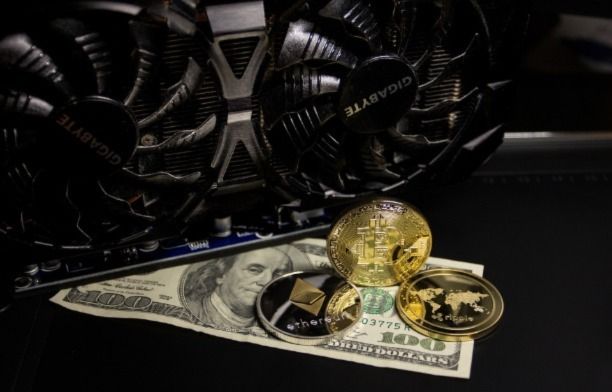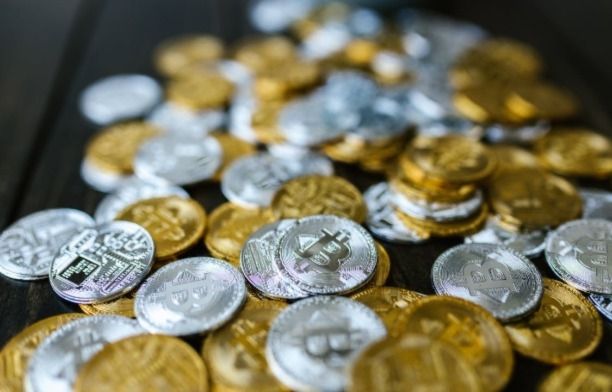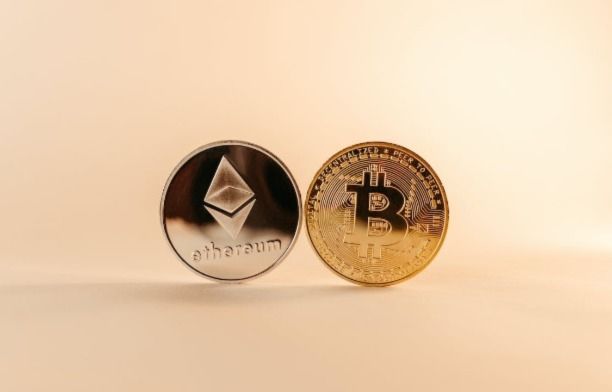What is Cryptocurrency? Here are 10 Types of Cryptocurrencies That You Should Know About
Cryptocurrency has become one of the most talked-about topics in the financial world in recent years. What is it and how can it be used?
Keep reading to get a better understanding of what crypto is.
Key Takeaways
- Cryptocurrency is a digital or virtual currency that uses cryptography to secure and verify transactions and to control the creation of new units
- A common way in which cryptocurrencies are made is through mining. Mining is a process that is energy intensive whereby computers solve complex puzzles in order to verify the authenticity of transactions on the network
- Cryptocurrencies and they generally fall into two main categories: Coins and tokens
- The 10 popular types of cryptocurrency in the market are: Bitcoin, Ethereum (Ether), Tether, Binance Coin (BNB), USD (USDC), XRP, Cardano (ADA), Solana, Dogecoin and Polkadot (DOT)
- Before you invest in crypto, be sure to conduct intensive research and consult your financial advisor as there's a level of risk attached to this type of investing
Disclaimer
The contents of this article are for educational purposes only. They are not intended to be a source of professional financial advice. You will find experts on financial planning, financial management, and real estate here. More on disclaimers here.
What is Cryptocurrency?
Cryptocurrency is a digital or virtual currency that uses cryptography to secure and verify transactions and to control the creation of new units. Cryptocurrency is not tied to the traditional banking system and therefore, crypto users don't have to rely on banks for verification of transactions.
Cryptocurrency is based on blockchain technology. Simply put, blockchain technology is a system that records information in a secure manner, thus making it impossible to change entries, double spend or hack the system. It also keeps a record of the owners of the different digital assets.
While you can use cryptocurrency as digital money to purchase normal goods and services, most people use crypto to purchase assets like stocks, NFTs and precious metals like gold. When you transfer cryptocurrency funds, the transactions are recorded in a public ledger. It is also important to note that cryptocurrency is stored in a digital wallet.
A caveat before you get into crypto, be sure to conduct intensive research and consult your financial advisor as there's a level of risk attached to this type of investing.
Bitcoin is a common cryptocurrency as it was the first one that was founded in 2009 by Satoshi Nakamoto and to date, it remains to be one of the best cryptocurrencies to trade for profit.
Where Does Cryptocurrency Come From?

A common way in which cryptocurrencies are made is through mining. Mining is a process that is energy intensive whereby computers solve complex puzzles in order to verify the authenticity of transactions on the network. Bitcoin is made using this process.
Some other types of cryptocurrencies are created using different methods such as staking, airdropping and initial coin offering (ICO). Most of these other methods are not too energy intensive, thus minimizing the impact that the process has on the environment.
What Are the Different Types of Crypto?
There are different types of cryptocurrencies and they generally fall into two main categories:
Coins
A digital coin is a form of cryptocurrency that is built on its own blockchain and very much acts like the fiat currencies (such as US dollar, Euro, Japanese yen and British pound) that we all use today. The digital coins can be used to store value and also as a medium of exchange between different parties when conducting business.
Some examples of coins include Bitcoin and Litecoin.
Tokens
Tokens are created on an existing blockchain and aren't really considered as currency. Rather, they are used as programmable assets that allow people to create and execute smart contracts. These contracts act as a proof of ownership of assets that are not part of the blockchain network. They can represent items like NFTs and other digital assets.
An example of a token is Ether and it is used to transact on the Ethereum network.
Another common term when it comes to crypto is altcoin. What is an alt coin?
The term "altcoin" came about as a short form of "alternative to Bitcoin". A lot of the altcoins in the market today were created as an improvement to Bitcoin. Bitcoin has a limited supply of coins and there can only be a maximum of 21 million Bitcoins created as decided by the inventor. As a result, this creates a high demand and reinforces that value that people attach to them.
Some examples of altcoins include Ethereum, USD coin, Tether, Litecoin among many more.
Popular Types of Cryptocurrency

In the crypto world, Bitcoin is considered the first cryptocurrency that was created. All the others are known as altcoins. Here are other popular digital currencies out in the market.
Disclaimer, the prices and market cap values are subject to change.
1. Bitcoin (BTC)
- Price: $27,765.70
- Market cap: $534.52B
When discussing cryptocurrency, Bitcoin is probably the one that most people refer to. It was created in 2009 but gained popularity in 2017. Bitcoin is built on blockchain technology, a public ledger that is decentralized and that has digital records of all Bitcoin transactions that have been made in the history of Bitcoin. The public leger allows the parties that own Bitcoins to prove ownership whenever they are trying to use them. This helps to avoid fraud and any tampering with the digital currency.
Bitcoins are not regulated by the government or any third parties like banks. They use blockchain technology to facilitate payments and digital transactions. An advantage of using such a decentralized currency is that it makes peer-to-peer money transfers more convenient and less expensive. Therefore, it eases the process of currency transfer between parties in say different countries, as compared to doing it the traditional way via third party financial institutions.
In 2023, the number of Bitcoins in circulation is roughly 19 million, against a capped limit of 21 million Bitcoins.
2. Ethereum (Ether)
- Price: $1,849.60
- Market cap: $ 221.57B
Ethereum refers to a platform that utilizes blockchain technology to enable the users of the platform to create smart contracts and decentralized apps, also known as “dApps”. This therefore means that the software doesn't have to be distributed by the popular online stores like Google Play Store or the App Store.
Ether is the token that is used to enable transactions on the Ethereum network. Unlike Bitcoins, there isn't a limit that has been attached to the number of Ethers that can be created.
Ethereum as a form of payment has enabled its users to conduct numerous trades online and they have been linked to the boom that has taken over in the NFT industry.
3. Tether
- Price: $1.00
- Market cap: $82.42B
Tether, also known as a "stablecoin" is a breed of cryptocurrency called fiat-collateralized stablecoins. The value of the tether is tied to a fiat currency, in this case the U.S. dollar.
Tether is designed to combine the positive attributes of cryptocurrency with the currency issued by a government in order to offer stability, lower transaction fees and transparency to its users.
If you're an investor looking to invest in crypto that isn't too volatile, Tether would be a great option for you. Based on data from June 2022, 50% of Bitcoin trading was conducted using Tether
4. Binance Coin (BNB)
- Price: $315.04
- Market cap: $49.10B
Binance Coin, also referred to as (BNB) is a cryptocurrency token that is used as a form of payment for the trading fees attached with trading on Binance Exchange.
Initially, Binance Coin was built on the Ethereum blockchain but now exists on the Binance blockchain platform.
Today, BNB can also be used to settle payments, for entertainment, to book for your travel as well as to access online and financial services.
When they were first created as a utility token in 2017, a maximum of 200 million tokens were made available. However, Binance buys some coins every quarter and destroys some coins in order to drive up the demand amongst its users. As of 2023, approximately 2.06 million coins, an equivalent of $575.46 million have been burned.
If you would like to buy Binance coins, you can do so on the Binance cryptocurrency exchange platform.
5. USD (USDC)
- Price:* $1.00
- Market cap: $$30.13B
Similar to Tether, USD Coin is a stablecoin that runs on the Ethereum blockchain and the value of it is tied to the U.S. dollar.
The main goal of having the USD Coin was to create a dollar that was fully digital in order to make user transactions faster and cheaper. The USDC has the stability of U.S. fiat currency but it doesn't require users to transact through a bank or live in a particular country.
As opposed to being an investment, the USDC is viewed as everyday currency that can be used by traders and merchants on the internet.
On March 29, 2021, Visa announced the use of USDC to settle transactions on its payment network. As of July 2022 there were 55 billion USDC in circulation.
6. XRP
- Price: $0.43
- Market cap: $22.144B
XRP is a digital currency that was developed by Ripple Labs, Inc. Ripple is a currency exchange system that facilitates fast and affordable transactions. The main aim of Ripple is to ease and scale digital payments across the globe.
XRP can be bought as an investment and it can also be used as a coin as an exchange for other cryptocurrencies. XRP can also be used to finance transactions on Ripple.
In the market today, there are a maximum of 100 billion XRP that exist and so no more can be mined. Compared to other digital currencies, XRP is cheaper and faster as XRP doesn't rely on complex digital verification processes via blockchain, instead the Ripple network makes use of a unique system to verify and validate transactions.
7. Cardano (ADA)
- Price: $0.37
- Market cap: $12.618B
Cardano is a cryptocurrency that was created by Charles Hoskinson, one of the co-founders of Ethereum. Ada is the name of the currency, named after Ada Lovelace, a 19th-century mathematician. Cardano uses smart contracts to enable identity management.
Cardano is the cryptocurrency platform behind ada, the name of the currency. Created by the co-founder of Ethereum, Cardano provides solutions for voter fraud, legal contract tracing and also uses smart contracts to enable identity management.
As of March 2022, Cardano had the eighth-largest market capitalization at $26.9 billion, and one ADA traded for approximately $0.80.
Cardano relies on proof-of-stake (PoS), which means that less energy is used when mining coins, as compared to Bitcoin. This makes it more efficient and environmentally friendly.
8. Solana
- Price $20.63
- Market cap: $8.16B
Solana is a decentralized blockchain platform that generates a cryptocurrency called Sol. It is built to enable apps that are user-friendly and scalable.
In 2023, Sol is trading at approximately $20.15 USD, and is growing steadily. What has contributed to this growth is the fact that Solana has made a lot of progress in decentralized finance, also known as DeFi, specifically when it comes to smart contract technology. These are programs that run like paper contracts but without the presence of middlemen.
The rise in value of Sol in 2021 was as a result of the launch of “Degenerate Ape Academy,” a non-fungible token (NFT).
9. Dogecoin
- Price: $0.073
- Market cap: $10.38B
Dogecoin was considered as the original "memecoin" when it was first launched in 2013. It was created by two software engineers, Billy Markus and Jackson Palmer as a joke as there was a lot of speculation about the cryptocurrency market.
Dogecoin is an altcoin that is run on a blockchain using a PoW system, quite similar to Bitcoin and Ethereum.
In 2019 when Elon Musk shared a tweet and implied that his views towards Dogecoin were positive, investment in the digital currency shot up and it raised Dogecoin's profile as a credible cryptocurrency.
It is accepted as a form of payment by some major companies, including the Dallas Mavericks, Kronos, and Space X, an American aerospace manufacturer owned by Elon Musk.
10. Polkadot (DOT)
- Price: $5.33
- Market cap: $6.30B
Polkadot was co-founded by Gavin Wood, who was also one of the co-founders of Ethereum in 2020. The cryptocurrency for the blockchain is referred to as dot.
Polkadot functions using two blockchains. The main network is where transactions are permanent and then there's the parallel network of user-created blockchains, called “parachains.” Parachains can be customized for numerous uses like building apps. They benefit from the security of the main blockchain.
Since establishment, it has rapidly grown to become among the bigger networks in the crypto industry.
How to Buy Cryptocurrency
Step 1
Select a broker or crypto exchange. Do your research and identify which broker you want to work with
Step 2
Create and verify your account
Step 3
Deposit money to invest
Step 4
Place your cryptocurrency order
Step 5
Select a suitable storage method
Should You Invest in Crypto?
Whether or not to invest in cryptocurrency is a decision that ultimately depends on an individual's personal circumstances, risk tolerance, and investment goals. Some factors to consider when deciding whether to invest in cryptocurrency include volatility, regulatory risks and your investment goals.
It's important to carefully consider the risks and rewards and to seek out the advice of a qualified financial advisor before making any investment decisions.
Bay Street Capital Holdings

Bay Street Capital Holdings is an independent investment advisory, wealth management, and financial planning firm headquartered in Palo Alto, CA. They manage portfolios with the goal of maintaining and increasing total assets and income with a high priority on managing total risk and volatility. Although many advisors may focus on maximizing returns, they place a higher priority on managing total risk and volatility.
Our founder, William Huston founded Bay Street after 13 years of supporting the United States' largest retirement plan ($650B) Thrift Savings Plan. He is recognized as Investopedia’s Top 100 Financial Advisors for 2021. In California, only two black-owned firms out of nineteen firms received this recognition.
In Scottsdale Arizona, Ekenna Anya-Gafu CFP, AAMS is recognized among the Best Financial Advisors for his responsiveness, friendliness, helpfulness, and detail. Bay Street was founded to advocate for diverse and emerging fund managers and entrepreneurs. In 2021, Bay Street was selected as a finalist out of over 900 firms across the US in the category of Asset Manager for Corporate Social Responsibility (CSR).
Sources
https://n26.com/en-eu/blog/types-of-cryptocurrency
https://www.investopedia.com/tech/most-important-cryptocurrencies-other-than-bitcoin/
https://www.bankrate.com/investing/types-of-cryptocurrency/
https://www.forbes.com/advisor/investing/how-to-buy-cryptocurrency/





















